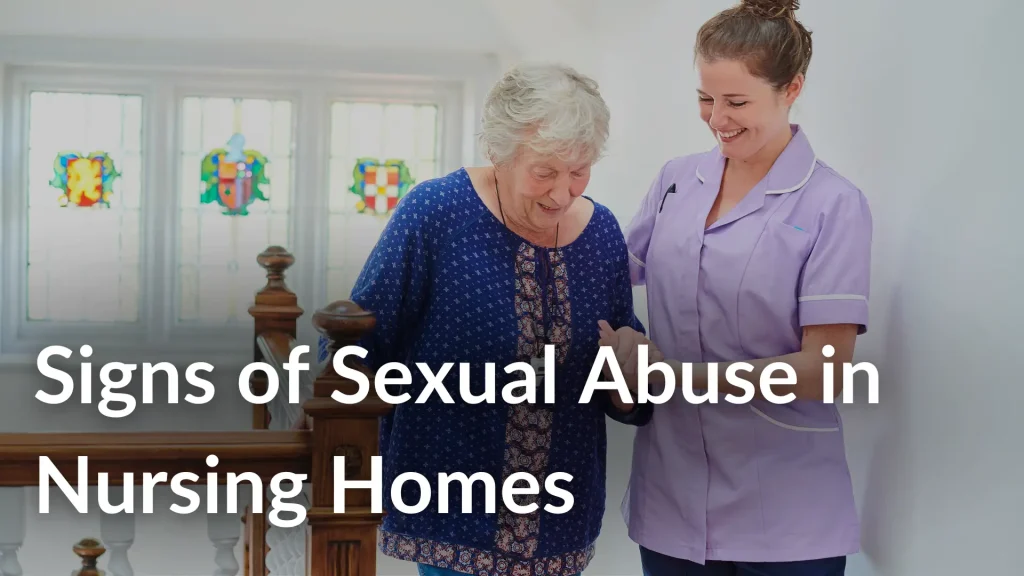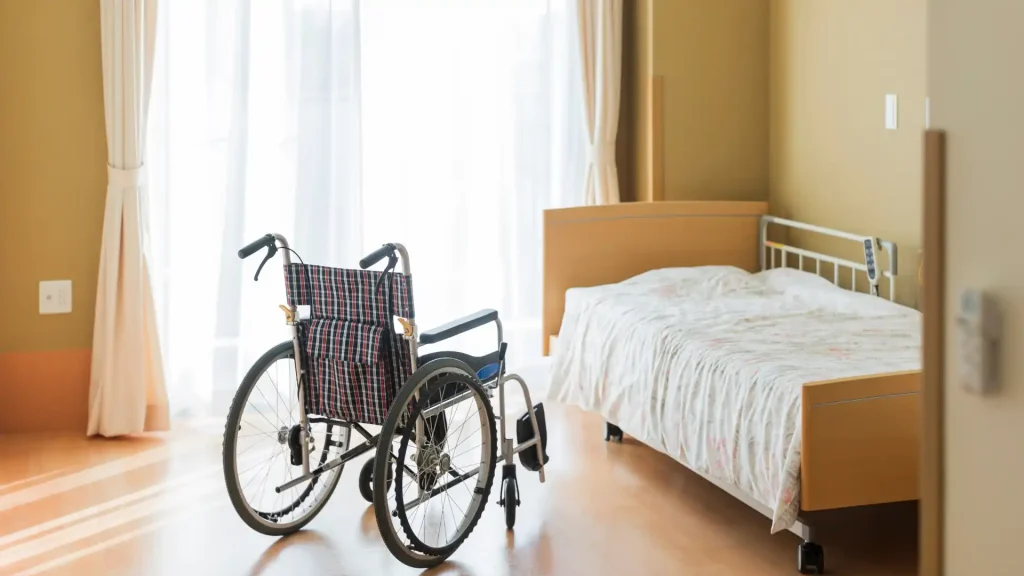Posted on Wednesday, October 30th, 2024 at 4:47 pm

Nursing home sexual abuse is a serious issue facing our most vulnerable friends, neighbors, and family members. According to an international study, nearly 2% of older people in institutional settings reported being sexually abused in the last year or were reported by their proxies of having been sexually abused. Closer to home, a study published in the American Journal of Public Health found that 0.6% of the 5,777 respondents in its survey said they had been the victims of sexual abuse in the past year. However, the advocacy group RAINN points out that these figures likely underrepresent the true scale of sexual abuse in nursing homes, as elder sexual abuse often goes unreported.
Do you have an elderly loved one in a nursing home whom you fear has been the victim of sexual abuse? If so, it helps to recognize some of the most common signs and know what to do next.
Physical Signs
Among the leading physical signs of elder abuse are:
- Difficulty walking or sitting for long periods without other explanation
- Bruising around the genitals and inner thighs
- Pain, irritation, or bleeding in the genitals or anus
- Pain when urinating or defecating
- Unexplained development of sexually transmitted disease (STD)
Many of these signs will not be obvious to a family member who does not have intimate contact with the elderly person. Rather, you might need access to your loved one’s medical records to recognize these signs. As such, it’s also important to know some of the less clinical indications.
Behavioral Signs
For most people, changes in an elderly loved one’s behavior could be easier to monitor. Watch out for the following behavioral indicators that could suggest being the target of sexual abuse:
- Fear of specific people or places
- Refusal to discuss recent interactions or events with loved ones
- Agitation, poor focus, and frequent mood changes
- Withdrawal from loved ones, friends, and social situations
- Fear or anxiety about using the restroom
- Sudden changes in eating habits or appetite
- Suicide ideation or attempts
- Symptoms of post-traumatic stress disorder (PTSD)
- Signs of inordinate closeness to a staff member or caregiver
- Nightmares, insomnia, and other sleep disruptions
While there are many reasons that your older loved one might be demonstrating one or more of these behavioral changes, don’t discount your apprehension. If you suspect your loved one has been the target of nursing home sexual abuse, it’s important to act quickly to help them.
What to Do If You Suspect Nursing Home Sexual Abuse
If you suspect that your loved one is being sexually abused in a nursing home, it is crucial to take immediate and decisive action to protect them and hold the responsible parties accountable. Here are several steps you should consider:
- Start Gathering Evidence: Begin by documenting any signs of abuse you notice. This may include physical signs such as bruises or scratches, changes in behavior like withdrawal or fear, or any direct statements about inappropriate or unwanted behavior by your loved one. Take photographs of any physical injuries and keep a detailed written record of your observations, including dates and times.
- Speak to Your Loved One: If possible, have a private and safe conversation with your loved one about your concerns. It’s important to approach this conversation gently and supportively, ensuring that they feel safe and understood. They may be fearful or ashamed to talk about the abuse, so it’s crucial to listen without judgment and reassure them of their safety.
- Contact Adult Protective Services: In Alabama, you can report suspected abuse to the Alabama Department of Senior Services through the Adult Protective Services (APS) division. APS is responsible for investigating abuse cases involving elderly adults and can provide further guidance and intervention.
- Get Your Loved One to Safety: Consider whether it is safe for your loved one to remain in the facility. If necessary, arrange for alternative care options where they can be safe from further abuse. This might mean transferring them to another facility or arranging for home care.
- Consult with a Lawyer: Contact a lawyer who handles elder abuse and personal injury law. A knowledgeable attorney can explain your rights and options, preserve crucial evidence, and work to hold the nursing home accountable. Legal action may also include pursuing compensation for the harm your loved one suffered.
Remember, the sooner you act up, the sooner you can protect your loved one.
Compensation for Nursing Home Sexual Abuse

Survivors of sexual abuse in nursing homes and their families may be entitled to compensation for what they’ve suffered. This compensation should address both tangible and intangible damages resulting from the abuse. It can help cover medical expenses, counseling services, pain and suffering, and even the costs of relocating to a new facility.
An experienced nursing home sexual abuse lawyer can help you and your family seek compensation for:
- Medical Expenses: Costs for any medical treatment required due to the abuse, including emergency services, follow-up care, and any specialized medical services
- Counseling and Rehabilitation Services: Expenses related to psychological counseling and any therapeutic services needed to help your loved one recover from the trauma
- Pain and Suffering: Compensation for physical pain and emotional distress your loved one experienced
Loss of Quality of Life: Compensation for any decline in your loved one’s enjoyment of life or ability to engage in favorite activities - Legal Fees: Reimbursement for legal expenses incurred while pursuing the claim
You may be entitled to punitive damages for particularly egregious conduct. A court may award these damages to punish the wrongdoer and deter similar behavior in the future.
Get Help from Farris, Riley & Pitt, LLP
Do you suspect that your loved one has been the victim of sexual abuse in a nursing home setting? If so, the team at Farris, Riley & Pitt, LLP wants to help you stand up for justice. We are proud of the millions of dollars we’ve recovered on behalf of families throughout Birmingham, and we want to get you the accountability and compensation you deserve. Contact our Birmingham nursing home abuse attorneys online or by calling (205) 324-1212 for a free consultation.
Related Posts:
Identifying and Preventing Elder Abuse and Neglect
How Nursing Home Understaffing Can Lead to Senior Abuse and Neglect















